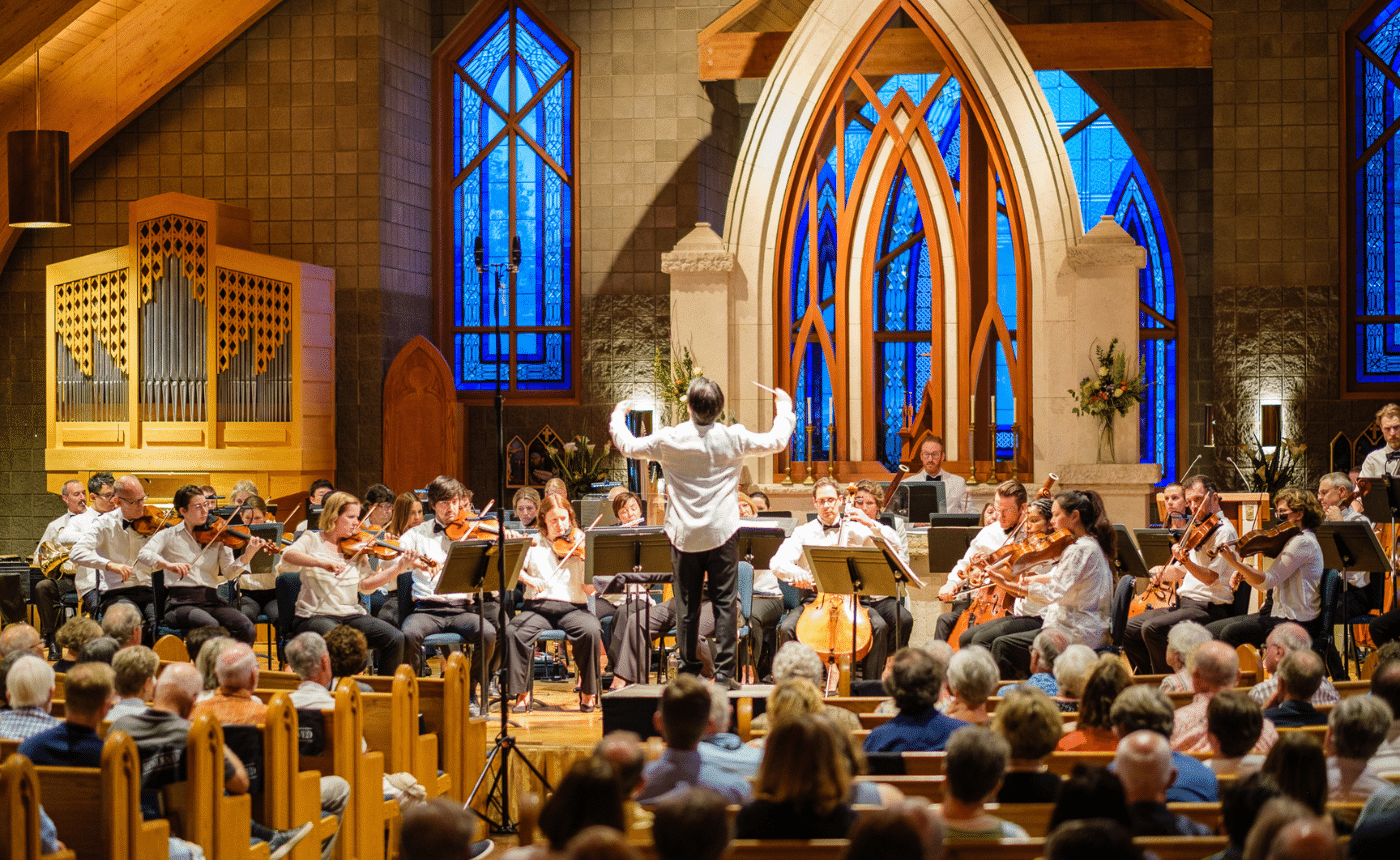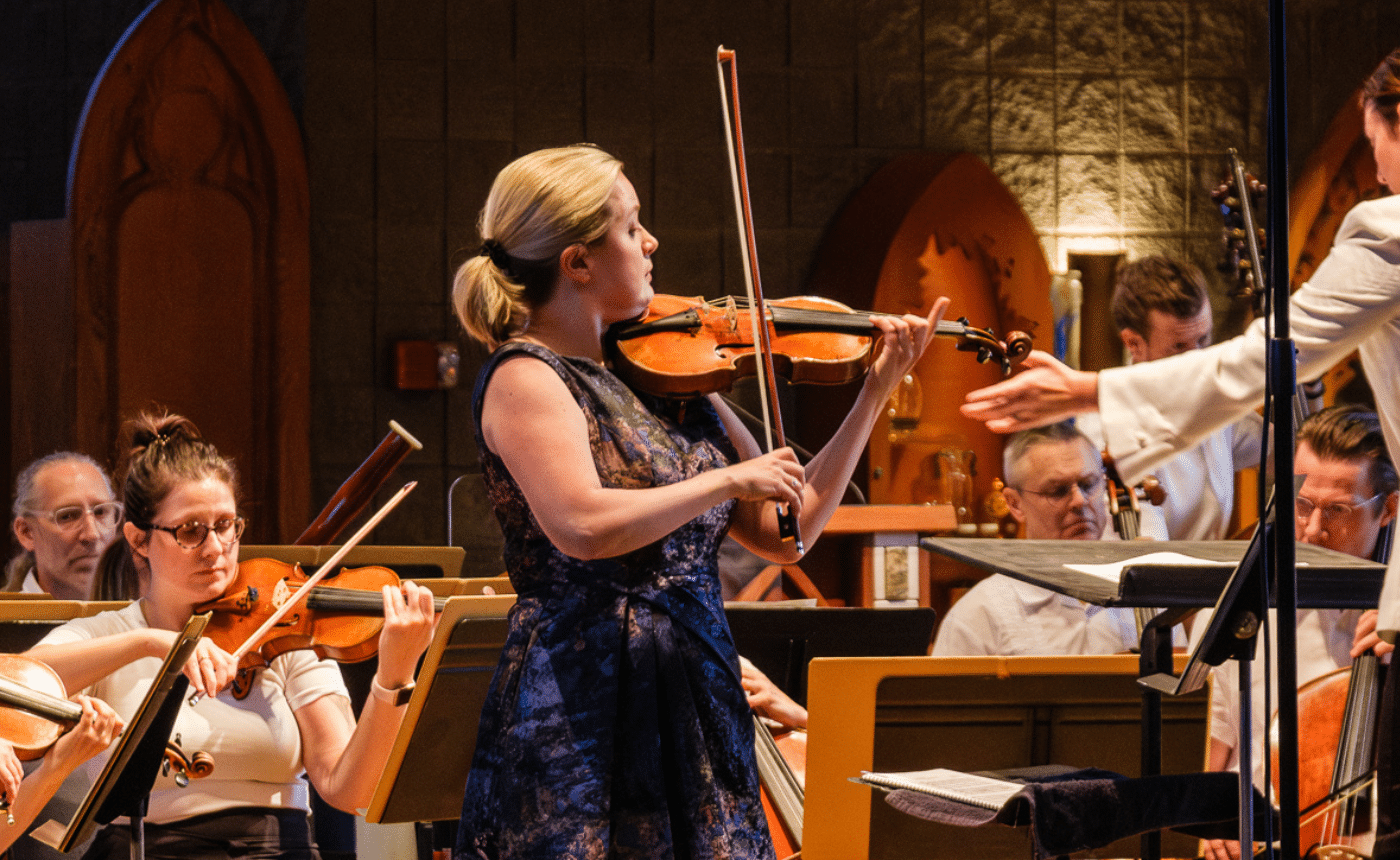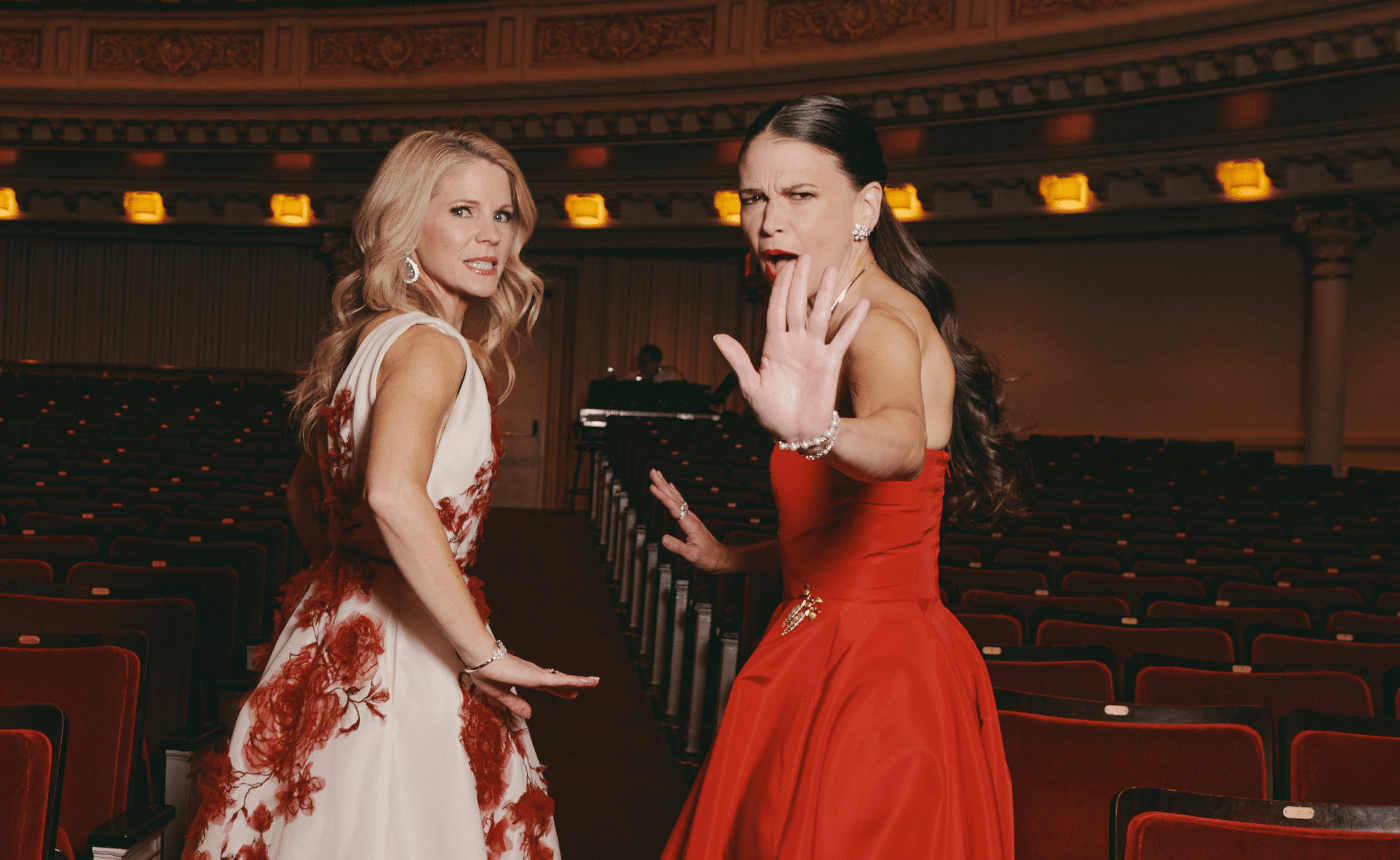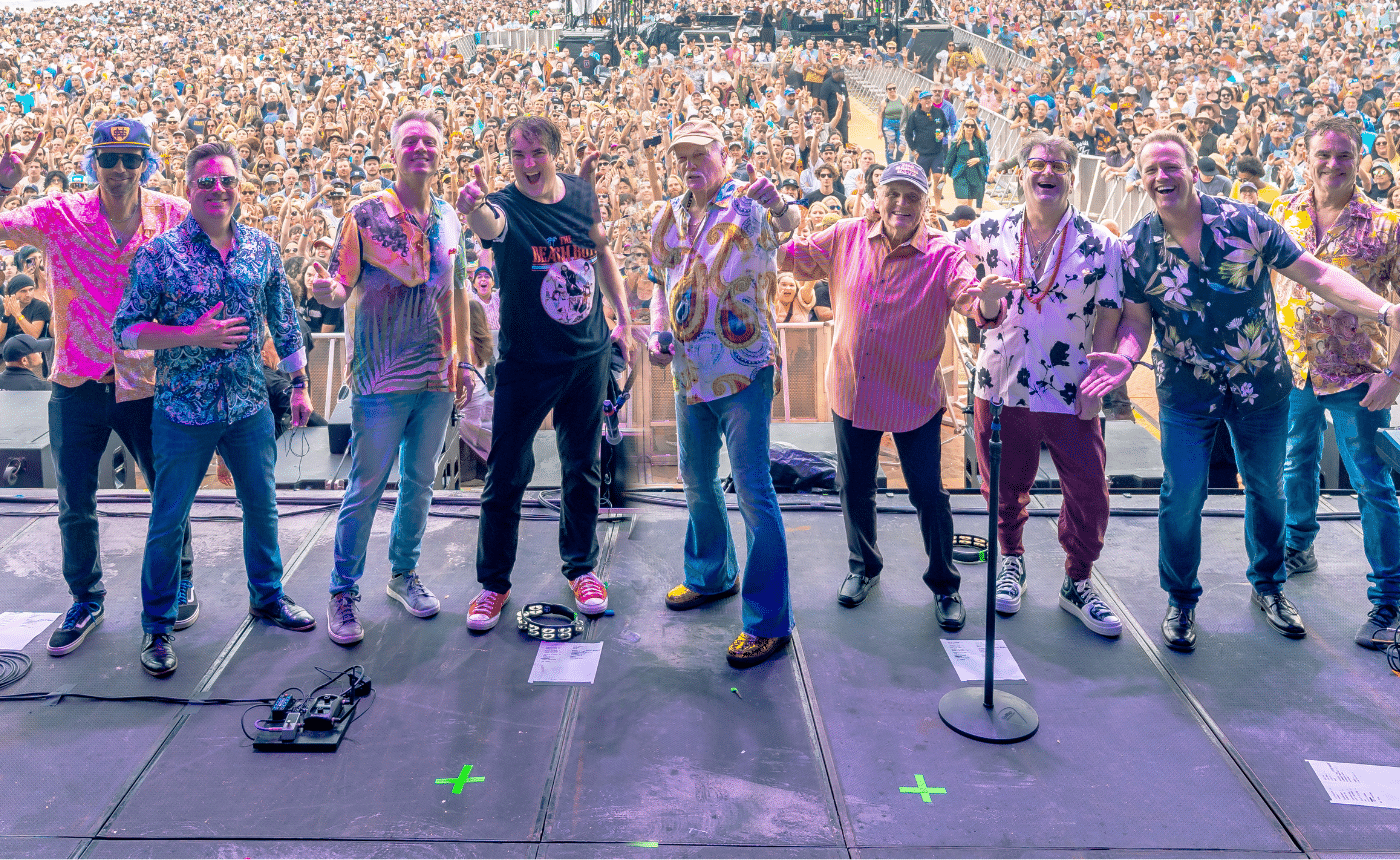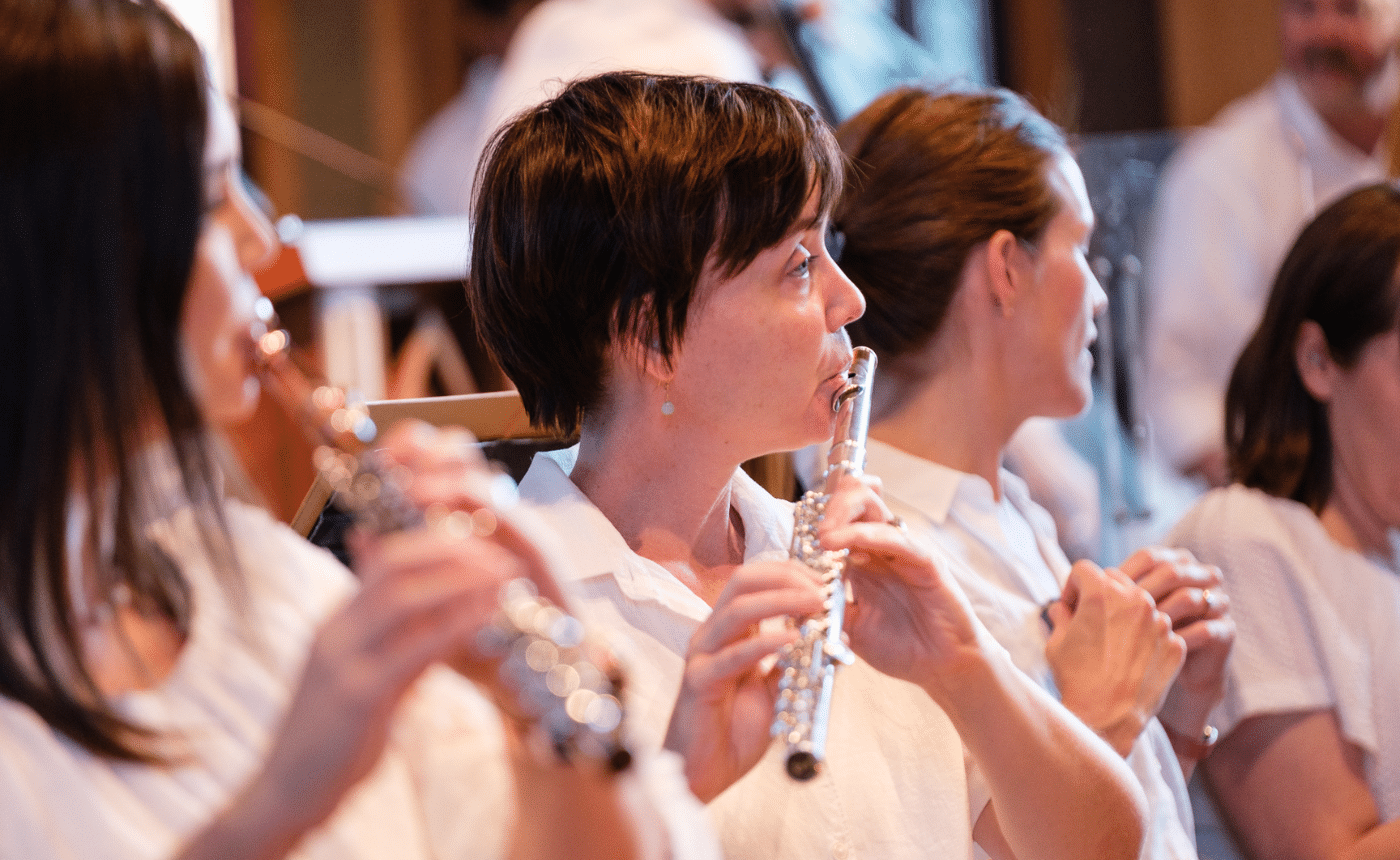SCHUMANN: Symphony. No. 3 “Rhenish”
by Jeff Counts
THE COMPOSER – ROBERT SCHUMANN (1810-1856) – Though it was not his first choice (it was fourth at best behind Berlin, Leipzig and Dresden), Schumann accepted a music director position in Dusseldorf in 1850. It wasn’t such a big compromise, really, since he had been attracted to Germany’s Rhineland region since he took a boat trip on the storied river as a young man. Dusseldorf had its own charms, a decent annual salary notable among them, but Schumann was pleased to also be so close to Cologne and its magnificent gothic cathedral. Schumann’s dear friend Ferdinand Hiller was music director there, which meant he could visit often. Hiller also provided Clara a nearby ally if Robert’s mental health issues returned.
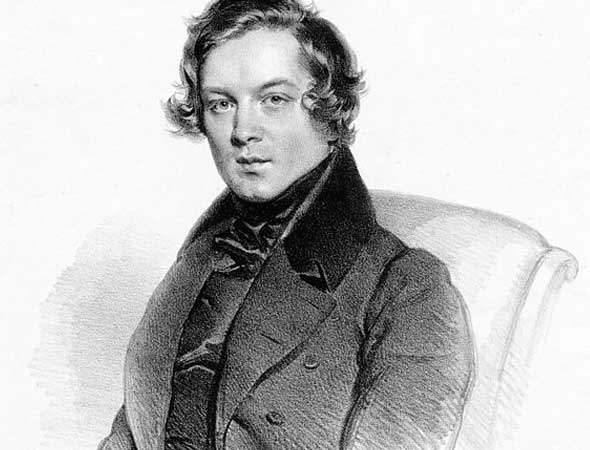
THE HISTORY – It was on one of those trips to see Hiller that Schumann began to think about a symphony that would reflect his new idyllic surroundings. He wanted to say thank you as well, since the Dusseldorfers had greeted them with such incredibly generosity upon them arrival with concerts, proclamations and even a balcony serenade at their hotel. The job was demanding, and would become considerably more so, but Schumann was optimistic and ready for the fresh start it offered. In between conducting duties, he composed his Cello Concerto in just two weeks and began the new symphony immediately after. It too developed quickly, taking only a month to complete. The premiere performance took place on Schumann’s own concert series in February of 1851. It was such a success, he was obliged to repeat it a month later. It seemed the Rhinelanders could sense Schumann’s enthusiasm for their special part of Germany, and they rewarded him in kind. The slow fourth movement (“Feierlich” or “Solemn”) must have had a particularly strong effect. It still does to this day, with a vaulted, cathedral-inspired sound world that is as gloriously spacious as anything Bruckner ever wrote. The story of the Schumann’s in Dusseldorf should have had a happy ending and anyone listening today to the hopeful, noble Symphony No. 3 would be forgiven for assuming it did. How could it not? Just listen to this music! But the positive energy of the “Rhenish” premiere was short lived. Schumann soon soured on the relaxed atmosphere of Dusseldorf and, consequently, began to prove himself a poor fit for his position. After just one year on the podium, he was asked to resign. He stayed on a bit longer, but the mounting pressure fed his old demons. In 1854 he attempted suicide by jumping into the Rhine. Yes, the Rhine, the very thing that had convinced him to come, that “beautiful river” with a great cathedral “reflect[ed] in its waves”.
THE CONTEXT – Elsewhere in 1850, U.S. President Zachary Taylor died after only 16 months in office, the Don Pacifico Affair nearly led to war between Britain and Greece and German scientist Rudolf Clausius formulated the second law of thermodynamics.
THE CONNECTION – The last time the Sarasota Orchestra played Schumann’s 3rd Symphony was back in November 2006 with Scott Yoo on the podium.




